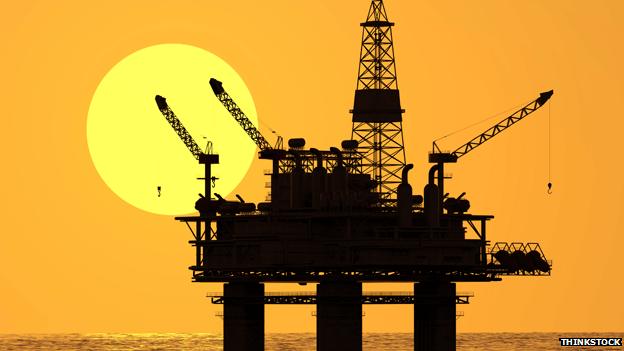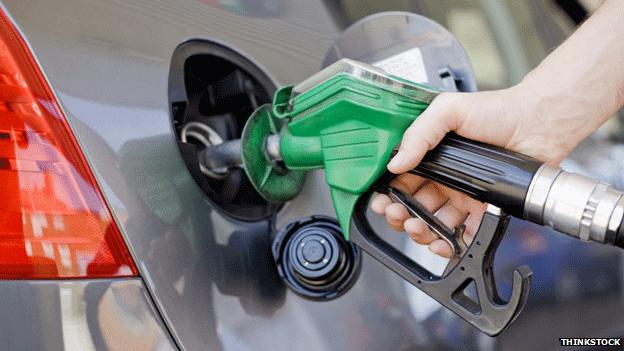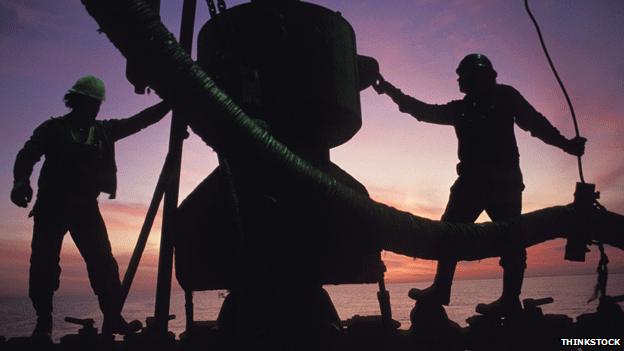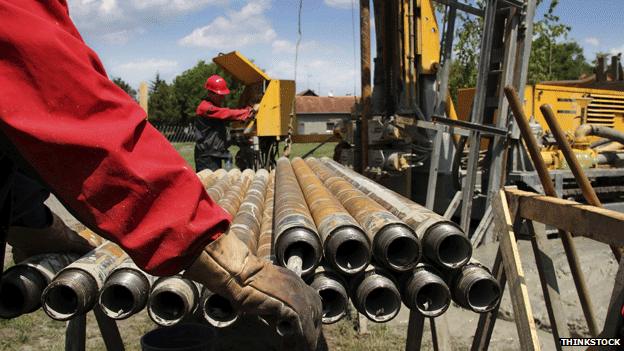Daily question: How much oil does Scotland have left?
- Published
As the people of Scotland weigh up how to vote in the independence referendum, they are asking questions on a range of topics.
In this series, we are looking at those major questions and by using statistics, analysis and expert views shining a light on some of the possible answers.
Here, the day after retired oilman Sir Ian Wood said predictions on the amount of oil left were too high, we tackle this key referendum issue.
Do you have a referendum question? Let us know by....
Emailing newsonlinescotland@bbc.co.uk.
We can also be found on Twitter @bbcscotlandnews, external
And on Facebook, external.
A number of BBC news website users have asked questions about oil, including Robin Weeden, Pete Johnston, Andrew Bryce, Nigel Henriques, Sarah Thomson, Brian Clark, Hugh Andrew, Kevin Thomas and Sanjoy Sen.

How much oil is left?

Any answer to this question should be taken with a very large pinch of North Sea salt.
Are we talking about proven, probable or possible reserves? Extractable under what economic circumstances? By today's technology or tomorrow's?
For decades, the "black gold" has been the subject of more speculation than the Loch Ness monster.
The future of North Sea oil is one of the key campaign battlegrounds ahead of the Scottish independence referendum. Did you know that the industry employs 450,000 people across the UK.

So what do we actually know?

Well, let's start with how much oil has been extracted so far.
According to the trade body, Oil and Gas UK, external, 42 billion barrels of oil equivalent (boe) has been sucked from the North Sea since the first gas was produced in West Sole in 1967 and the first oil in the Argyll field in 1975. Production peaked in 1999 and has been falling ever since.
NOTE: Oil and gas are measured in "barrels of oil equivalent" (boe) a measure of the energy contained in a barrel (159 litres) of crude oil, and the rate of production is measured in barrels of oil equivalent per day.

What sort of money could be made out of the North Sea oil that is left?


First of all it's worth bearing in mind that the term North Sea oil usually refers to all reserves of the UK Continental Shelf, the seabed to which Britain claims mineral rights. This includes newer discoveries west of the Shetland Islands which are actually in the Atlantic Ocean.
Estimates vary widely but there is general agreement that there are still potential riches beneath the waves.
Both the UK and Scottish governments have pledged to make the most of the potential.
There is of course a greater interest for both governments beyond simply supporting industry, and that is tax.
According to the Department of Energy and Climate Change, tax revenues from North Sea oil peaked in 1984/85 at £25.9bn [in 2013 prices].
In 2013/14 they stood at £4.7bn, down from £6.1bn in 2012/13.
But forecasting future revenue is incredibly complicated. It depends on many things, including how much oil and gas is extracted, the global oil price, the rate of taxation and the exchange rate between sterling and the dollar.

So what of the oil price?

By the standards of an often volatile commodity, the price of oil has been relatively stable recently. Brent crude, which is used as a benchmark by traders of North Sea oil, averaged...
$109 a barrel in 2013
$112 a barrel in 2012
and $111 dollars a barrel in 2011.
The Office for Budget Responsbility (OBR), which was set up by the UK government, has forecast that entire UK tax revenues from the North Sea will fall from £6.1bn in 2012/13 to £3.5bn in 2018/19.
The Scottish government estimates that £5.6bn of the £6.1bn generated in 2012/13 was made in Scottish waters.
Its predictions for revenue from the "Scottish sector" in 2018/19 vary between £3.2bn and £8bn, as set out in its Oil and Gas Analytical Bulletin, external, published in May 2014.

What are the backers of independence saying?

Yes campaigners accuse Westminster of covering up the potential of North Sea oil in the 1970s to dampen Scottish nationalism, citing as evidence comments by the former Labour chancellor Lord (Denis) Healey, external and a 1975 government report, external which was kept secret for 30 years.
They also point to the opinion of Investors Chronicle, external, published by the Financial Times group, that the UK government is now "deliberately downplaying" the North Sea's potential ahead of the referendum.
They go on to say that Westminster squandered rather than invested the oil money, using it to fund Margaret Thatcher's restructuring of the British economy; propping up the pound at the expense of exports and blowing it on unemployment benefit for the millions forced out of work as heavy industry was dismantled.
They also accuse Labour, external and the Conservative/Liberal Democrat coalition of threatening investment with periodic tax raids on the industry.
Instead nationalists point to Norway which invested its oil bonanza in what is now said to be the world's largest sovereign wealth fund.
It's not too late, they conclude, for Scotland to take a more prosperous path.

What are those against independence saying?

Those against independence have a simple slogan: "Independence is forever, oil is not."
They accuse the Scottish National Party of inflating the income from oil to try to make the case for a "Yes" vote, only to be forced to revise down its estimates.
They quote a warning from the Scottish government's own Fiscal Commission that the country "should plan budgets on a cautious estimate for oil revenues".
And they say it is nonsense to claim that the oil money was "squandered". On the contrary, they argue, since its discovery, billions of pounds have been spent on improving Scotland's NHS, building better schools and paying state pensions.
Even with oil, they claim, Scotland ran a budget deficit, external in 20 of the past 21 years and therefore could not afford to set up its own Norwegian-style oil fund, without raising taxes or cutting public spending.
Pro-union politicians allege that leaked briefing papers reveal that the SNP know this to be the case.
Arguing that the difference between high oil revenue and low oil revenue amounts to the entire Scottish NHS budget, the Better Together campaign insist that only the "broad shoulders of the UK" can cope with the volatility and only the UK can support the decommissioning of the industry's gear as the oil begins to run out.